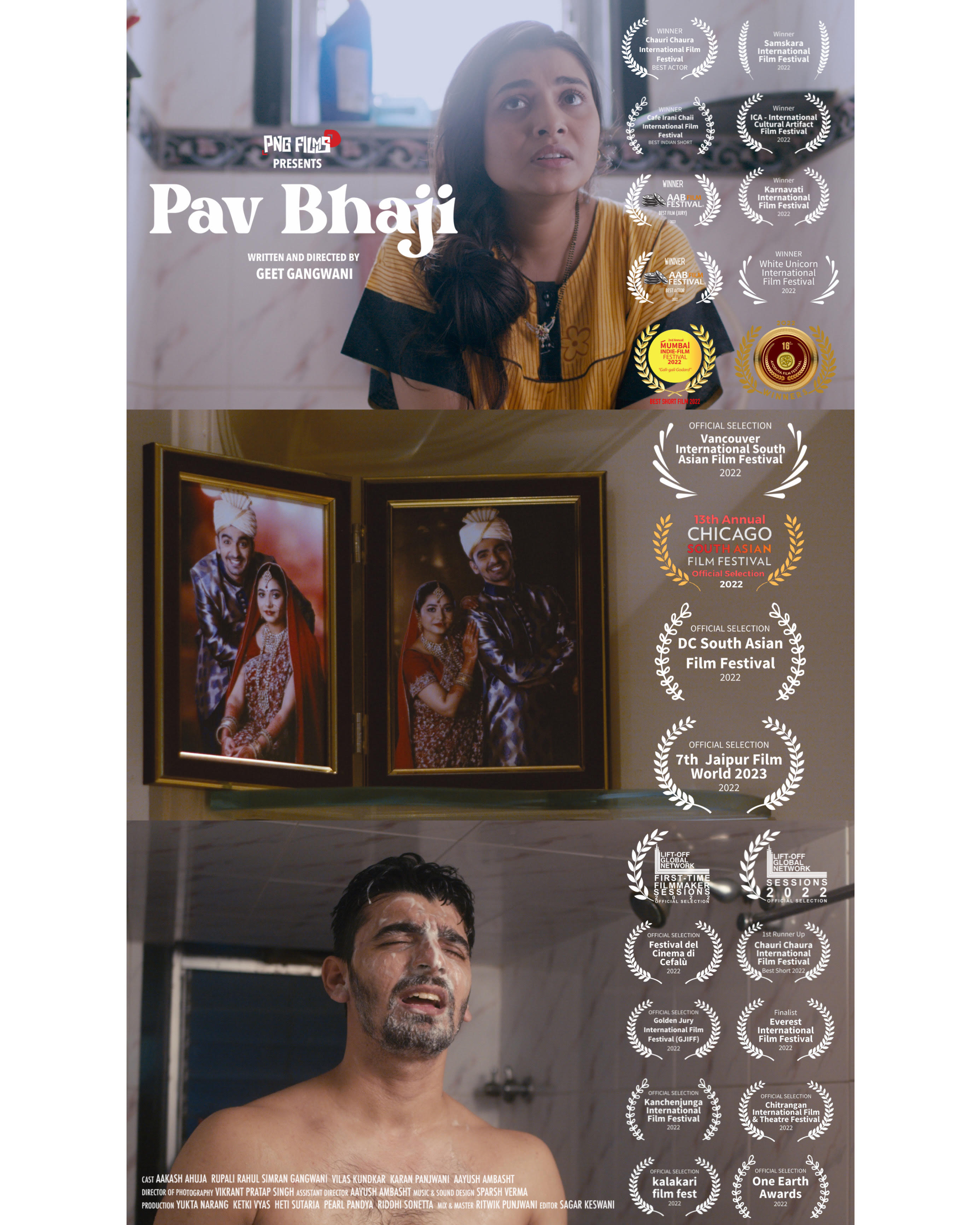
IVWFF 2020 Film Review “Aamis (Ravening)”
WATCH THE TRAILER HERE
First, the Recap:
Pristine appeal. When there comes into people’s lives a certain something that begins to transform them, unexpectedly, joyfully, and with very little effort, it can appear innocent enough. Yet, as a foundation is laid that starts to diverge into a realm they shouldn’t aim to traverse through, the further pursuit of it then manifests into a much more perilous endeavor whose ramifications can permeate far beyond just those with whom it began. A lonely, frustrated wife and pediatrician named Nirmali (Lima Das) discovers that an oft absent husband leads her to befriend a local PhD research student, Sumon (Arghadeep Barua), initiating a mutually shared, culinary-based journey that soon takes them on a uncertain, shadowy road towards an equally volatile endgame.
Next, my Mind:
A wholly daring, uncompromising, beautifully raw vision that delivers an ultimately jarring glimpse into utter, all-consuming obsession and the places both excitingly alluring and overtly dark it can take you, this 107-minute feature film effort from writer/director Bhaskar Hazarika, dialogue writers Sunayana Dutta and Sagar Saurabh, producers Shyam Bora and Poonam Deol, co-producers Priyanka Agarwal and Anshulika Dubey, and executive producer Anupama Bose employs a slow-burn execution that immerses the viewer into a world of initially suppressed desire and unrequited infatuation before dropping a blunt force plot twist that will shake you to the core and leave you speechless in its intentionally provocative and evocative narrative’s wake.
Showcased as part of the 2020 I View World Film Festival, sponsored by the embassies of India, Canada, Sweden, Netherlands, Italy, Argentina, British Council, and The EU, curated by Engendered Delhi, and in partnership with NYCSAFF, the sheer boldness and candid approach that makes indie cinema the source of magic that it is shines fully through here in telling the tale of one married woman’s emotional remoteness getting caught up in a younger man’s freedom, attitude, and growing bond through the world of bizarre and unconventional foods first taking a fully innocent, even understandable, form then decidedly derailing into what evolves into a deeply disturbing fantasy that also delves a little into the horror/thriller genre for good measure, leading up to a finale that punches you in the face with its unnerving purpose.
What strikes me about dramatic, character-driven films like this is the absolute wealth and virtually kaleidoscopic range of thematic avenues this kind of story can muster and place in the viewer’s mind to contemplate when it comes to depicting the arenas of human behavior they do, as here we are entreated to lessons in not just the foundational danger of an illicit affairs and the right vs. wrong argument being explored, but also get the accompanying notions of older vs. younger relationships, separate yet strangely similar worlds colliding, unhealthy fixation and addiction, the ever-fluctuating nature of the heart, the pain we’ll endure to feed our compulsion, all-encompassing hunger in multiple formats, total desperation to quell the mania we’ve been trapped into, and the cascading consequences of it all that drag anyone and everyone into a web of taboo-driven craze. It’s all addressed in potent and effectual ways here, utilized to maximize the impact the story ends up having to unsettling yet magnificently creative degrees.
Das is completely luminous and mesmerizing, putting forth an understated then smoldering level of perfectly delivered intensity that sells you on the character of Nirmali, a pediatrician and wife who’s found that her almost never present doctor husband is creating a void unfulfilled in her existence. When random circumstances bring her into contact with a young research scholar named Sumon from the local college and the two slowly start noticing a bond, Nirmali’s hesitations simmer into wanting the attention and company more and more, made “easier” by their adoration of unusual foods. However, even has friends, co-workers, and even her son notice the path she’s taking, it has all gone to an extent that’s twisted, a chaotic connection that threatens to disrupt, even destroy, all she used to cherish. It’s a fantastic performance that so deftly draws you into Nirmali’s once-hidden proclivities that have now been given birth, and watching Das play this frenetic and potentially disastrous relationship out is truly excellent cinema to witness.
Likewise, Barua displays a strong, firmly resolute, yet delightful charm that so wonderfully represents the character he portrays named Sumon, an intelligent, driven PhD research scholar whose path suddenly finds itself intertwined with a married woman and her slowly but assuredly reciprocated appreciation of food, especially meat, that soon becomes his sole focus in order to remain connected with her. Even despite the hard warnings of his best friend, Sumon dives into the foodie-driven affair with deliberate but increasingly distracted motives that ultimately take both himself and Nirmali into territory that will possibly poison everything they are becoming while losing the people who they were. Watching as Sumon’s own sudden changes of heart begin to try and take over as he watches her dark descent is so intensely disturbing even as we still want to now empathize with him somehow, and Barua embodies these shifting dynamics with both an “everyman” demeanor as well as slowly burning ferocity that really shows through at the right times.
Primary supporting turns integral to the grander story as it unfolds are offered by Neetali Das as Nirmali’s best friend Jumi, who seems to wish to encourage Nirmali’s dalliance with joyful glee given her own life not exactly being total marital bliss while not realizing what’s happening underneath the surface, and Sagar Saurabh as Elias, Sumon’s best friend and veterinarian who more than tries his level best to dissuade his friend to stop the pursuit before it’s too late. Additional and no less important supporting performances arrive from Manash Das as Nirmali’s workaholic husband Dilip, Victor Rajkumar as Jumi’s husband Rakesh, Momee Borah as Nirmali and Dilips house help Mina, Chandan Bhuyan as Bora Da, an office co-woker of Nirmali’s, Jishnu Kashyap as Nirmali and Dilip’s son Piku, Siddharth Boro as Eddie, Jumi’s own affair, Uddipta Bhattacharyya as Rajesh, a friend of Sumon, along with Samar Jyoti Sarkar, Utkal Hazowary, Padmini Baruah, Kulanandini Mahanta, and Sattyakee Dcom Bhuyan.
In total, “Aamis (Ravening)” is a legitimately muted then forcefully disconcerting examination of indiscretion, its fatal hand, and the profoundly devastating reverberations it carries for those left in its aftermath. It’s an illustration of our human need for love, companionship, and sense of being wanted taken to an edgy extreme that turn this into a highly cautionary tale which resonates loudly within our conscious, perhaps to very much become a sobering reminder overall of just what happens when initially chaste actions turn bad, and our own vices and deceptions we create to justify it all can then explode, crashing it all down.
As always, this is all for your consideration and comment. Until next time, thank you for reading!






